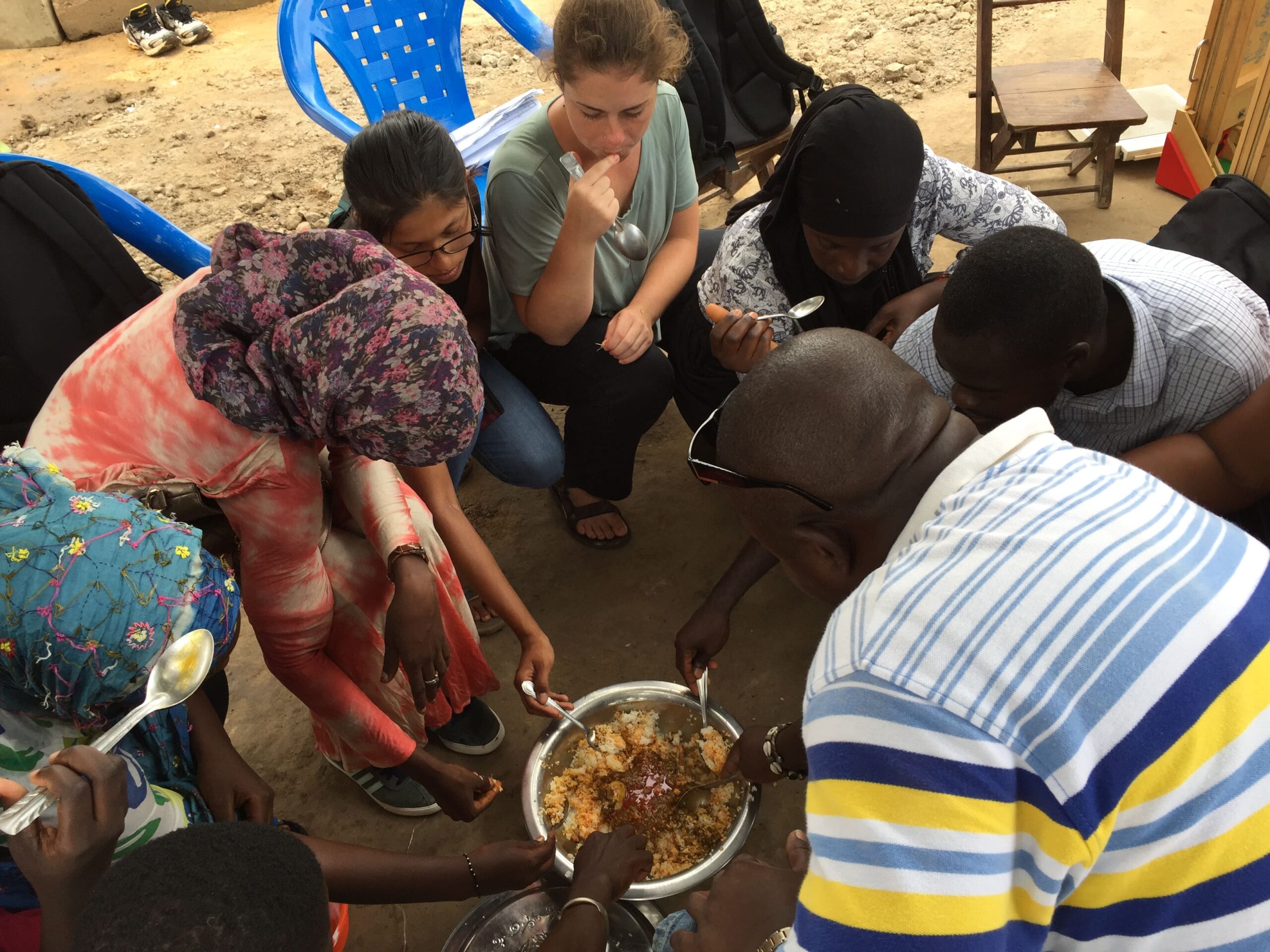On the Road to Sanyang
By: Anjalee Bhuyan, CAS ’22

Anjalee (third from left) shares a meal between conducting surveys in The Gambia
Gambia Goat Dairy – Banjul, Gambia
Conducting a baseline nutrition survey in the village community Sanyang, The Gambia was the goal of my two-month internship, so seeing the culmination of my efforts over the course of the summer was an incredible experience. The survey lasted for one week in which time our team of nine interviewers (enumerators) conducted approximately 700 interviews in 20 enumerations within Sanyang. The target population for the survey was women aged 15-49 years and children under age five, and our survey included sections asking about demographic information, dietary diversity, animal-sourced food consumption, and breastfeeding.
Throughout the summer, I worked with members of the Bureau of Statistics and the National Nutrition Agency of the Gambia (NaNA) to ensure the cultural appropriateness and feasibility of conducting the survey this summer. I gained invaluable experience during my preparations for this survey, including drafting a concept letter, writing and submitting a research proposal for Internal Board Review (IRB) approval, and learning how to work effectively and appropriately in a foreign country with different customs.
After conducting extensive research, especially on minimum dietary diversity (MDD) studies, the principal investigator (PI) of the project, and I held a one day training in which we explained the endeavors of our organization Gambia Goat Dairy (affiliated with PennVet), the purpose of the Sanyang Baseline Nutrition Survey, and ran a minimum dietary diversity study and anthropometric measurement training.
For the following seven days, my co-intern and I took bus cars down to the neighboring fishing village, Tanji, and then down to Sanyang. Every day we met at the Akalo (head of the village)’s house and decided which areas we would be surveying for the day. Every day we completed about three enumeration areas, using maps provided by GBOS, and scales and stadiometers provided by NaNA to select areas and take measurements. Our main challenge was that it heavily rained on some days, and so the streets became flooded and it was difficult to walk. We managed to keep trekking through, though, and complete our goal.
There are many local languages spoken in The Gambia, primarily Mandinka, so I learned to speak a couple of phrases, enough to make basic conversation, which was fun. I also tried to explain the project and purpose of the survey to as many people as I could when they spoke English. People generally seemed excited about the survey, although wary about outsiders being in the village. I was grateful for the hard-working interviewers and support of the Akalo, who explained our project thoroughly to the people so they clearly understood our goals.
It was hard work hiking through the village for almost nine hours every day, trying to get as many interviews as we collect, but I really enjoyed the experience and made unforgettable memories. I got to really experience the village of Sanyang from a unique perspective. I also had a lot of fun working with my team to accomplish the goal. We celebrated reaching our goal with a beach party in the rain and bought fish from the Tanji fish markets for a cookout. By the end of the survey, I was very proud of what our team had accomplished and grateful for all that I learned throughout the process.
The Global Research and Internship Program (GRIP) provides outstanding undergraduate and graduate students the opportunity to intern or conduct research abroad for 8 to 12 weeks over the summer. Participants gain career-enhancing experience and global exposure that is essential in a global workforce. Placements and funding awards are available.